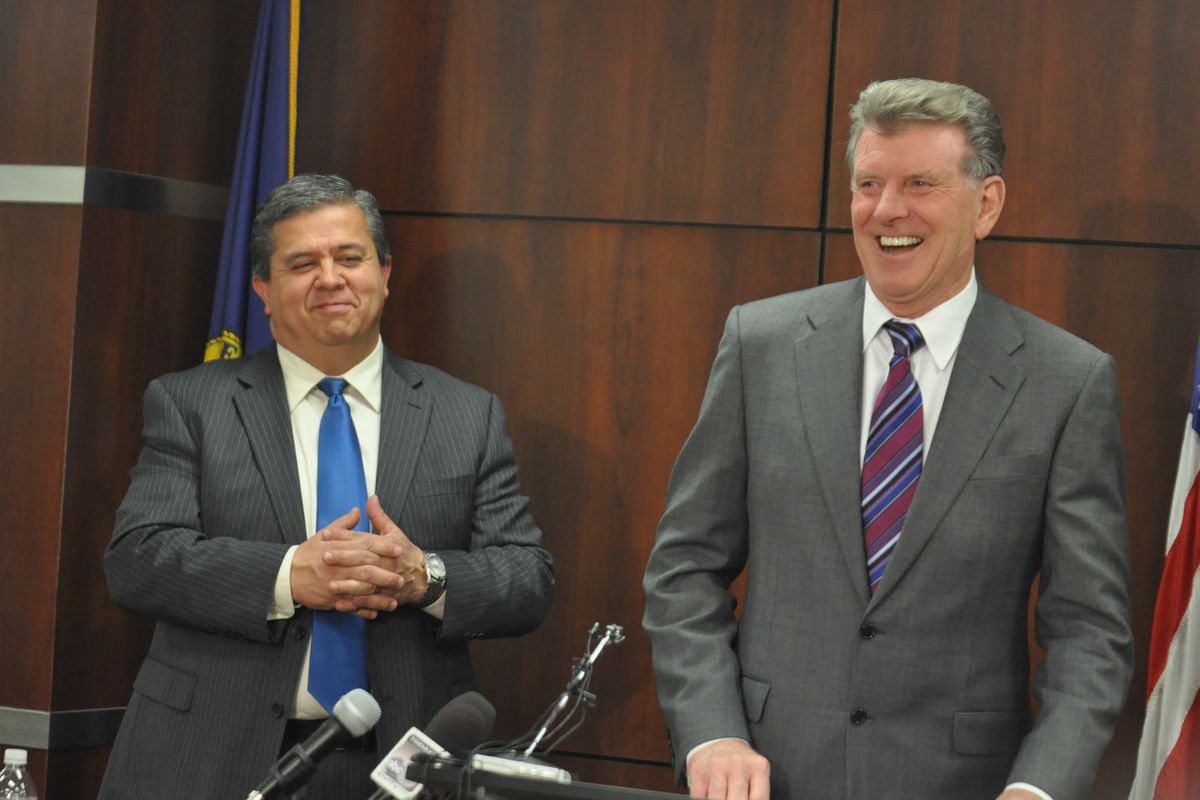As execution approaches, Otter checks in from Maui
Little says he won’t override Idaho governor’s stand on convicted killer

BOISE – As last-minute pleas for clemency continued to pour into Idaho’s state Capitol this week in advance of the state’s first execution since 1994, Idaho Gov. Butch Otter wasn’t there – he was at a posh resort in Maui to speak about presidential politics, leaving Lt. Gov. Brad Little in charge.
Little was Idaho’s acting governor from Sunday, when Otter left for Hawaii, until today, when Otter is planning to return to Boise, leaving the California Independent Voter Project’s “Business and Leader Exchange” a day early to make it back for the Friday execution.
During that time, condemned killer Paul Ezra Rhoades had two bids for a stay of execution rejected by the U.S. District Court in Boise and filed an appeal to the 9th Circuit Court of Appeals; the 9th circuit rejected that appeal Wednesday night.Where was Otter, who has the authority to commute the death sentence? As guests of the California group, he and first lady Lori Otter flew to Hawaii for the group’s conference at the Fairmont Kea Lani Resort, a beachfront spread with three swimming pools, a 140-foot water slide and an array of luxury amenities.
The California Independent Voter Project, which backs open primary elections and pushed for California’s new open primary, is headed by former California lawmaker J. Stephen Peace, who also was the producer and co-writer of the “Attack of the Killer Tomatoes” films, in which he appeared as Lt. Wilbur Finletter.
The San Diego-based organization says its goal is “championing the independent minded voter and stimulating the public dialogue,” and it considers itself an “idea factory” and a “public policy venture capital fund.”
Little, a rancher and former state senator, was left in frigid Idaho to deal with the run-up to the execution and other duties, from chairing this week’s state Land Board meeting to preparing for an upcoming state trade mission to Brazil and Mexico in December.
The low-key Little said he’s “really uncomfortable with capital punishment, just because of the very nature of it,” but that after much “soul searching” he voted in favor of updating and reinstating Idaho’s death penalty in the Idaho Senate in 2003, when a U.S. Supreme Court decision had changed guidelines for the law.
Little said he became convinced that the death penalty is needed as a deterrent for some, including criminals already in prison for life who might otherwise attack guards or commit other crimes.
Little said he wouldn’t override Otter’s stand, which has been to deny clemency to Rhoades, a triple murderer. “That isn’t going to happen,” Little said flatly.
Little said he hasn’t even read the letters and emails that continued to come in to the Capitol regarding the execution this week, leaving them instead for Otter on his return. “I guess I could go ask for ’em if I wanted to, but I have chosen not to do that,” Little said.
The lieutenant governor cited two reasons for not wading into the issue: his role as lieutenant governor and the circumstances of the Rhoades case.
“I mean, the Constitution says you have all the rights and powers of the governor when the governor’s out of state, but you know what? The governor comes back,” Little said.
Otter when he was lieutenant governor, famously vetoed a bill to raise Idaho’s drinking age to 21, though the state risked losing millions in federal highway funds. When then-Gov. Cecil Andrus returned to the state, he signed a new bill.
Little said he might have considered acting if the situation were different. If Idaho had a governor who refused to consider any pardons, even in cases where there was “significant doubt,” he’d act, he said. “But this is not anywhere close to that kind of a case.”
Little said, “The system has worked.” He said he agreed with comments in the decision issued Monday night by U.S. Magistrate Judge Ron Bush that “the state of Idaho expects the process to work.”
Little said Otter has been in contact with his staff all week, and has called Little “two or three times” about issues.
Little said his misgivings about the death penalty focus on the associated costs and the freeing of previously condemned inmates due to new DNA evidence. But, he said, “I don’t think anybody’s arguing that Paul Ezra Rhoades is anywhere close to innocent.”